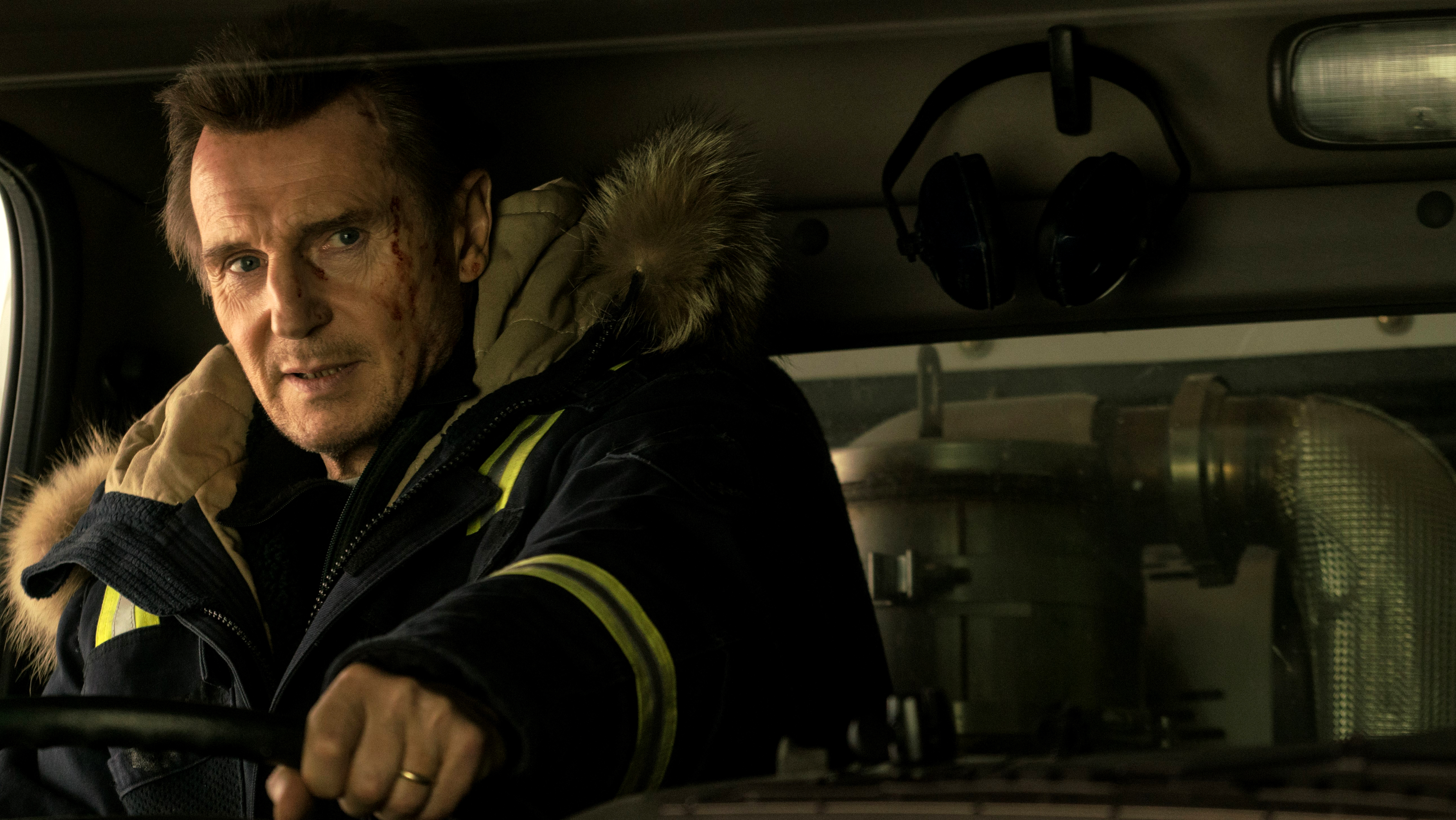The many violent fantasies of Liam Neeson
What you see when you watch one of his action movies now


A free daily email with the biggest news stories of the day – and the best features from TheWeek.com
You are now subscribed
Your newsletter sign-up was successful
When Liam Neeson starred in the low-rent 2009 thriller Taken, what the movie had going for it was novelty: See the Oscar nominee (Schindler's List) and consummate on-screen mentor (Phantom Menace; Batman Begins) moonlight as a take-charge action hero. Taken didn't demand much from its star, but the gravitas Neeson brought to line about his "particular set of skills" was probably a big part of its surprise financial success.
Ten years later, seven or eight more Neeson action movies have turned him into a genuine movie star. But his recent run of action movies may be slowing with the release of his new picture Cold Pursuit — not because the movie isn't good (it is!), but because of Neeson's recent off-screen confession. After he answered a boilerplate interview question about revenge with an unsettlingly candid admission about roaming the streets as a young man, looking to commit a racist hate crime as revenge for a friend's rape, the premiere of his movie was canceled and Neeson was suddenly playing defense.
It's always tricky to figure out how much off-screen behavior can or should affect how a critic (or a fan) looks at a piece of art. Neeson's case is particularly complicated, for a number of conflicting factors: He volunteered information from his distant past, rather than attempting to cover it up; he discussed acting on a vile urge, but ultimately (through either happenstance or better judgment) not following it through to its tragic end; he expressed remorse for his actions, but not necessarily a clear understanding of just how racist they were (indeed, insisting later, after bringing up race, that race had little to do with it). It's also difficult to avoid that many of his recent movies, including Cold Pursuit, address notions of vigilante justice that can be coded or warped into the kinds of racist actions he described in the interview.
The Week
Escape your echo chamber. Get the facts behind the news, plus analysis from multiple perspectives.

Sign up for The Week's Free Newsletters
From our morning news briefing to a weekly Good News Newsletter, get the best of The Week delivered directly to your inbox.
From our morning news briefing to a weekly Good News Newsletter, get the best of The Week delivered directly to your inbox.
As it happens, the violence in Cold Pursuit isn't tainted with the same xenophobia that powered the Taken trilogy. Neeson's most popular action movies also rank among his worst, perversely recasting him as an American killing his way through perilous foreign countries to retrieve various family members. In Cold Pursuit he plays a vengeful snowplow driver, which makes the movie seem like a parody of a Neeson action movie. His Nelson Coxman is a model citizen of a small Colorado town whose world is up-ended by the death of his son. It's ruled a drug overdose, but Coxman suspects foul play; soon enough he's killing his way up the chain of a powerful drug cartel, sparking a violent turf squabble in the process.
Cold Pursuit isn't quite a parody, but it's not quite business as usual, either. It's based on In Order Of Disappearance, a Norwegian film that's now streaming on Netflix, remade here by the same director, Hans Petter Moland. But does it matter that the movie's violence, while cartoonish, proceeds with a deadpan, quizzical sort of tone? That Moland isn't chasing mindless Taken-style sensation? The answers will vary depending on the audience — but ultimately, the movie is a little too flip to truly meditate on the costs of violence; whenever a character dies, their ridiculous mob nickname is tallied with on-screen text, and hardly anyone Coxman kills is afforded much audience sympathy.
But the deadpan film is also not the first time one of Neeson's action pictures have subverted his Taken image. The similarly wintry The Grey is more contemplative than its Neeson-versus-wolves trailers indicated, and his thrillers with Jaume Collet-Serra, like Non-Stop and Run All Night, emphasize his characters' human failings rather than their particular sets of skills. He's less avenging angel than stumbling screw-up trying for messy, often violent redemptions. Cold Pursuit reverses that trajectory, casting him as a good man succumbing to his killer instincts (and, admittedly, often regarding that process with deadpan detachment).
Part of what's so unnerving about Neeson's recent comments, then, is how easy it is to place them into a pulpy action-movie narrative. Plenty have asked what, exactly, possessed Neeson to share this particular story during an otherwise uneventful interview — and whether he related more to Taken than anyone initially thought. The latter is certainly possible, but his other thrillers suggest that, if anything, Neeson identifies more closely with the idea of a strong man thrown into trouble by a combination of bad luck and personal failings. If Taken resonated with audiences because of its righteousness, Neeson's other action hits offer a different sort of catharsis, a rather Catholic relief of guilt through suffering.
A free daily email with the biggest news stories of the day – and the best features from TheWeek.com
This doesn't excuse Neeson's real-life actions; if anything, it gives them the tint of movie-star self-aggrandizement, where violence is all part of the main character's redemption or fall, not an injustice for its direct victims. But if Neeson's clumsy, discomfiting confession makes bad movies like Taken and good ones like Cold Pursuit hard to watch, maybe that's not such a bad thing. Maybe it's an overdue reminder about the real-life ugliness that informs stories like this.
Jesse Hassenger's film and culture criticism has appeared in The Onion's A.V. Club, Brooklyn Magazine, and Men's Journal online, among others. He lives in Brooklyn, where he also writes fiction, edits textbooks, and helps run SportsAlcohol.com, a pop culture blog and podcast.
-
 The ‘ravenous’ demand for Cornish minerals
The ‘ravenous’ demand for Cornish mineralsUnder the Radar Growing need for critical minerals to power tech has intensified ‘appetite’ for lithium, which could be a ‘huge boon’ for local economy
-
 Why are election experts taking Trump’s midterm threats seriously?
Why are election experts taking Trump’s midterm threats seriously?IN THE SPOTLIGHT As the president muses about polling place deployments and a centralized electoral system aimed at one-party control, lawmakers are taking this administration at its word
-
 ‘Restaurateurs have become millionaires’
‘Restaurateurs have become millionaires’Instant Opinion Opinion, comment and editorials of the day
-
 Walter Isaacson's 'Elon Musk' can 'scarcely contain its subject'
Walter Isaacson's 'Elon Musk' can 'scarcely contain its subject'The latest biography on the elusive tech mogul is causing a stir among critics
-
 Welcome to the new TheWeek.com!
Welcome to the new TheWeek.com!The Explainer Please allow us to reintroduce ourselves
-
 The Oscars finale was a heartless disaster
The Oscars finale was a heartless disasterThe Explainer A calculated attempt at emotional manipulation goes very wrong
-
 Most awkward awards show ever?
Most awkward awards show ever?The Explainer The best, worst, and most shocking moments from a chaotic Golden Globes
-
 The possible silver lining to the Warner Bros. deal
The possible silver lining to the Warner Bros. dealThe Explainer Could what's terrible for theaters be good for creators?
-
 Jeffrey Wright is the new 'narrator voice'
Jeffrey Wright is the new 'narrator voice'The Explainer Move over, Sam Elliott and Morgan Freeman
-
 This week's literary events are the biggest award shows of 2020
This week's literary events are the biggest award shows of 2020feature So long, Oscar. Hello, Booker.
-
 What She Dies Tomorrow can teach us about our unshakable obsession with mortality
What She Dies Tomorrow can teach us about our unshakable obsession with mortalityThe Explainer This film isn't about the pandemic. But it can help viewers confront their fears about death.
